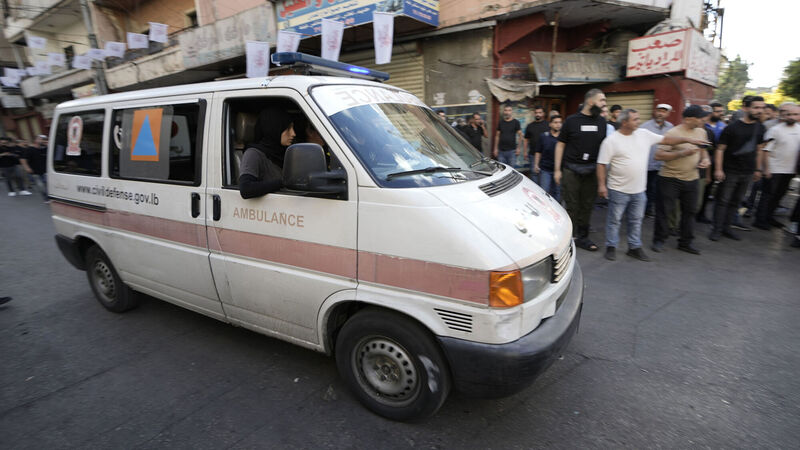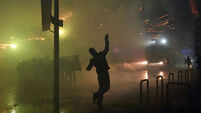At least 20 dead and 450 hurt in fresh wave of explosions across Lebanon

An ambulance believed to be carrying wounded people, after multiple explosions were heard during the funeral of four Hezbollah fighters who were killed Monday after their handheld pagers exploded, in the southern suburb of Beirut on Wednesday. Picture: AP Photo/Bilal Hussein
At least 20 people have been killed and 450 wounded in an apparent second wave of detonations of electronic devices in Beirut and multiple parts of Lebanon.
Hezbollah officials and state media was reporting that walkie-talkies and even solar equipment were being targeted a day after hundreds of pagers blew up.













